Care Package: Creating an Audiobook for Your Poetry Collection
Essential starting points and tools from one poet's process with their debut book
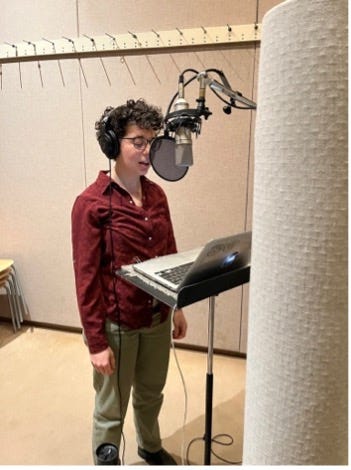
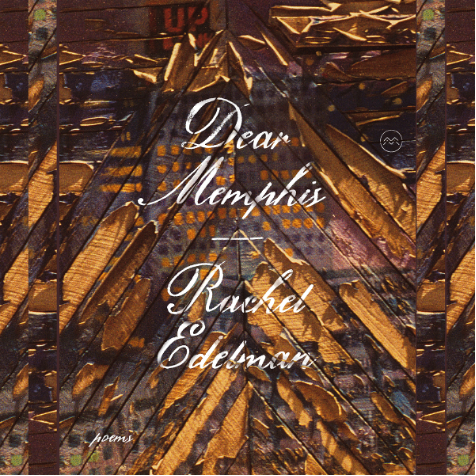
Care packages are bonus resources of the Poetry Bulletin—special thanks to paid subscribers who support the extra time it takes to create more tools like this!
These are a gathering of good things (specific ideas, practices, examples, tools) from fellow poets . . . shared freely, to help you keep going with your own work. Be sure to check out earlier care packages on writing query letters for poetry book submissions and making zines.
This is also a way to bring more voices into this project and pay poets for sharing a skill they have, a practice others could try, etc. Learn more about how to create a future care package for the Poetry Bulletin.
This care package is by Rachel Edelman, author of Dear Memphis. Many thanks to Rachel for sharing their process with all of us! Editor’s notes are by Emily Stoddard. If you have something to ask or share, please leave a comment so we can all trade tools and learn from each other.
Why make an audiobook?
Making an audiobook for my debut poetry collection Dear Memphis was less of an economic move and more of an accessibility one, for readers with visual impairments and other disabilities. I work as a teacher of adolescents, and I’ve seen audiobooks transform a frustrated reader into an excited one. Especially when neurodivergent readers encounter reading in modality they can comprehend, reading becomes a space of joy. I want everyone who wants to read Dear Memphis to be able to.
I use the word “read” intentionally. Critics “read” films, albums, and performances; a partygoer “reads” the room. Audiobooks are reading. Prior to mass literacy, all literature was orature, moving from voice into bodies, whether spoken or sung. Audiobooks carry a wisp of that tradition into the present.
But a poetry audiobook?
Excerpt: “Nocturne,” a poem from Dear Memphis
Once, poet Woogee Bae introduced me by saying, “If you’ve ever heard Rachel read her poems aloud, you know you’ve been given a gift—a soft whisper that leaves its traces in the air, the dirt, and that roots within you.” My poems speak and sing. They call toward the Hebrew and Aramaic prayers of Jewish liturgy, as well as the cadences and vowels of Southern American speech. I treasure every opportunity to put my lines into voice. And so, when Dear Memphis was picked up by River River Books, I was determined to make it available in audio form.
Originally published in Great River Review, as a runner-up in the 2021 Pink Poetry Prize
Alt-text, to be read in any order:
I wake in a pain without place.
A functional problem, my doctor said, though I heard her say, You can stand it.
No longer a singular injury: not my left lower back, not my knee-creaks.
We hide our pain from other women; we teach each other how.
At my hip, my cat gathers all of her paws, tail on the bridge of her nose, tucked in for the long dark.
Pain of motion, pain of stillness, pain of separation.
Last month E’s aunt fell and didn’t tell anyone.
Soon, the harvest will hunch my shoulders.
In these wild hips I’ll stand and pound the weeping cabbage into submergence.
My mother doesn’t trust my brine and boils hers instead.
I won’t choose to bring a child into this lifetime.
Your Contract: Ask Your Publisher about Audiobooks
River River Books acquired Dear Memphis in its very first open reading period. When I got the publication offer, I immediately requested a conversation to discuss producing an audiobook. The editors didn’t have the capacity to produce an audiobook, so we talked about other options. They agreed to revise their standard contract so that I retained the audio rights.
If I were negotiating now, that’s the way I’d frame the request from the start: “Can I retain the audio rights?” It would’ve felt off if they wouldn’t produce an audiobook but also wouldn’t allow me to. With that, the production was in my hands.
Editor’s Note: Copyright
Be sure you’re clear on rights as you review a contract with a potential publisher. Don’t be afraid to ask questions! A good publisher will discuss these issues transparently. Your copyright is yours to keep and negotiate with, and any rights to various formats (print, ebooks, audiobooks) should be spelled out in your contract. FYI: Authors Guild includes a contract review as part of its membership fee.
The Cost & Process of Recording an Audiobook
with DIY resources if you don’t have a grant or other support to record
I wrote several grant applications to support audio, touring, and publicity for Dear Memphis, and one big one came through: the City of Seattle’s Office of Arts & Culture awarded me a CityArtist Grant of $8,000. As soon as I got the news, I hired a friend to refresh my website (thanks Bretty Rawson at Slow Blink Media!) and emailed the Jack Straw Cultural Center to book a recording session.
Jack Straw is a Seattle audio production organization that supports musicians, artists, and writers. Their office in the U District houses two recording studios and a gallery, and their engineers are well-versed in voice recording. They also work regularly with vocal coach Alyssa Keene, who they booked for my session. Since they’re a nonprofit with a mission to support artists, they charge significantly less than commercial studios.
The total for recording Dear Memphis was $350. Here’s how it broke down:
Annual membership to Jack Straw: $50
Four hours of studio recording and editing, at $50 per hour: $200
Two hours of vocal coaching, at $50 per hour: $100
⟶ One more expense: Each format (e.g., paperback, audiobook) of your book needs its own ISBN. Rachel purchased one at cost through River River for $50. Here’s more on ISBNs for audiobooks.
The CityArtist Grant would cover expenses incurred in 2024 and 2025; Dear Memphis was set to publish in print on January 23, 2024. I wanted the audiobook to come out as close to the print publication date as possible, so I booked the recording for the first Saturday in January. It was a quick turnaround, but I don’t think I would have wanted more time. I’ve honed my reading skills for many years, and I didn’t feel the need to add any extra coaching or practice sessions, though other poets very well might.
One financial hiccup arose a week or so after recording: the City of Seattle’s ombudsman didn’t approve final contracts and begin disbursing money to CityArtist Grantees until mid-February. (Program manager Irene Gómez immediately informed me about the delay, and she was incredibly kind and communicative throughout the grant cycle.) I was on the hook for the recording cost until I got that check. For me, that meant moving some money from savings and repaying myself later. For others, that might’ve meant carrying the balance on a credit card.
Editor’s Note: Tools for DIY Audiobook Production
I haven’t attempted an audiobook yet, but I’ve recorded for online magazines, workshop videos, audio writing prompts, etc. These are some of my favorite DIY audio tools:
Blue Yeti microphone (around $100 new, around $50-$75 used) — There are tons of microphone options now, but I find this one to be accessible *and* a good fit for more “traditional” recording where you’re delivering a script of audio (vs. conversational audio, like recording a vlog or podcast). Similar to a recording studio vibe, the Yeti’s size/design gives me the concrete sense of speaking into the mic, which helps me remember to enunciate, stand straighter, etc. I pair it with a pop filter (around $15 to $30).
Descript, a recording and editing app (limited free plan, or $24 for one month for more recording hours). Descript is a tool to edit videos and audio as if they’re text. Upload or record in the app, and it will generate a transcript that you can then edit as if it’s a document. I do not love all the AI features they’re throwing into the tool now, but the core editing feature is still pretty cool.
Curtains! Acoustics! Little touches make a difference for recording quality. I try to record in a small room, with the curtains closed and a cozy blanket on my chair. I wear something soft too, and not too many layers—if you tend to talk with your hands like I do, it’s a bummer to ruin a good take just because your clothes got in the way. And turn off any noisy fans or HVAC if you’re recording at home.
How to make all this happen, especially with limited money, time, or energy? One possibility is to pool funds and support with two or three other poets. Maybe host an audiobook recording day (or weekend) where you can troubleshoot together, trade skills, coach each other on how your readings sound, etc. Maybe it’s a few days spread out: one to record together, one to edit and prepare the audio files, and a final day to work on distribution and marketing. If a small group is open to doing this and sharing a process diary with the Poetry Bulletin, I would love that!
In the Recording Studio
On recording day, I hydrated my vocal cords with honey water all morning and loosened up my body by walking the two miles to the studio. Audio engineer Tom Stiles welcomed me into the control room, and I shared the Dear Memphis e-galley with him and vocal coach Alyssa Keene.
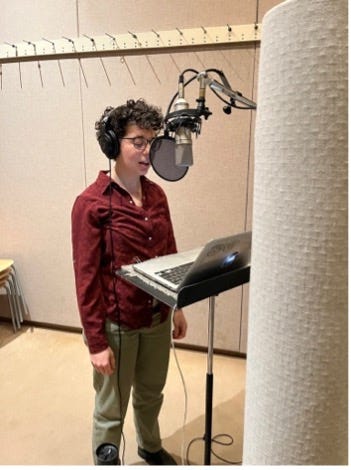
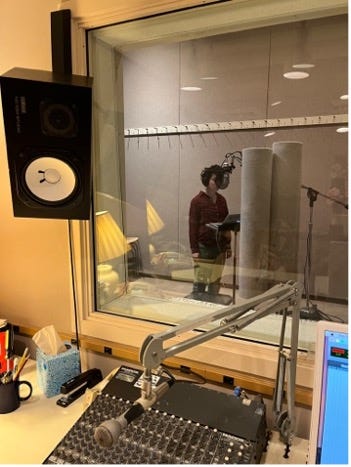
I balanced my laptop (I don’t own a tablet) on a music stand. Alyssa adjusted the microphone, sound dampeners, and microphone stand until Tom said the sound was right. Then, Alyssa joined him behind the window. I was alone with my water bottle full of warm water and my poems.
Alyssa was the best director I could have imagined. Each time she spoke she gave just one or two clear, direct notes, never interrupting, always connecting what she saw on the page with the way I spoke the words aloud. She gave a bit of context, then introduced cues she’d use again and again. A little more gas at the end, she might say. I loved watching Tom and Alyssa react to my words as I read, and I felt so much respect for my work and dedication to creating a fully embodied recording.
We worked through the book beginning to end, taking one break in the middle. After the last poem, “Down this River,” Alyssa asked me to go back to the beginning and re-record the first ten poems or so. I didn’t know we’d do that ahead of time, and when we did, I was struck by how different the end of the book felt from the beginning. There was a grounded, determined assuredness in the final poems that balanced the opening’s searching anger. Re-recording, I found a surge of energy coursing out of my rage.
The whole session took about two hours. Tom sent me the tracked and mastered files about a week later.
Choosing a Distributor for Your Audiobook
Readers can purchase audiobooks from a wide variety of retailers. Rather than uploading an audiobook to each one individually, it’s much simpler for authors to upload their tracked mp3 files, with each poem appearing like a song on an album, to a distributor.
Audio engineer Tom checked and double-checked the technical requirements so that when he edited my recording, he could fit those specifications. Some distributors also required certain components (title, author, “the end,”) in the opening and closing credits, so it’s helpful to have some idea of distribution prior to recording.
I really wanted the audiobook to be available as soon as the paper book was, even though I was working full-time as a high school teacher, planning a cross-country book tour, and writing essays and interview responses to go live near my publication date.
So when it came to figuring out audiobook distribution, I called in help from my mom. Her patience for process and planning made this an ideal task for her. She researched the options and presented me with two distributors: Findaway Voices (which had just been acquired by Spotify, and is now Spotify for Authors) and Author’s Republic.
Another Distribution Option: The Question of Amazon
When we started on a few of the extra steps required by Amazon for ACX (Audible) distribution, they asked for a Kindle-enabled ebook link, which I did not and would not have. It didn’t feel worth it to seek out some back way to offer my book via Jeff Bezos, so Dear Memphis isn’t available on Audible.
Editor’s Note: Which distributor for which platforms?
As of August 2025, Spotify has moved forward with Spotify for Authors, and Findaway Voices is now an independent company called Voices by INaudio.
So if you want distribution on just Spotify, Spotify for Authors is one path.
If you want distribution elsewhere (outside Spotify), then Voices by INaudio is one option, along with Author’s Republic. Distributors like these reach platforms such as Apple and Libro.fm—here’s a list of platforms you can reach through Author’s Republic, for example.
Adapting Your Cover for an Audiobook
Audiobook covers are square icons, and Dear Memphis is a 6 x 8 rectangle. After River River Books confirmed that I could adapt the cover that Alban Fisher designed, I hired my friend Gabrielle Bates to do so. I love how Gabby made the wood paneling look even glitchier, like a shifted timeline or a faulted rock formation, while still keeping the white script as a high-contrast focal point in thumbnail form.
Marketing Your Audiobook
The audiobook was approved by the quality checking process within a week or so of uploading it. After that, I posted its availability on socials, and I added links to it on my email signature and website.
Most people get the audiobook through their libraries or from Libro.FM. If I had more capacity, I would have loved to reach out to media sources and pitched a list of great poetry audiobooks, including my own. If you, reader, were to do that and include Dear Memphis, I’d be touched.
Setting Your Price
When I was setting the audiobook’s retail price, Findaway Voices suggested prices around $5.00, consistent with other poetry titles. I remember thinking Wow, I might actually make money on this. That has not turned out to be true.
Every few months I get royalty reports for laughable sums: $2.16, $2.52, $0.19, $0.03, $0.19. In total, I’ve earned $5.44 from audiobook sales. I would like to know more about why these sums are so small, but every time I try to discern the details, I get mired in terms of service I cannot understand. I earn single cents from Spotify and a dollar or so for each library that purchases it. I’m glad I wasn’t counting on any income.
The more fruitful payout has been the audiobook’s worldwide accessibility. Long before paper copies landed with my cousins in Kuala Lumpur or my collaborator in Berlin, my dear ones could listen to Dear Memphis.
As my debut nears 18 months in the world, I hope it will continue to migrate from ear to ear and hand to hand.


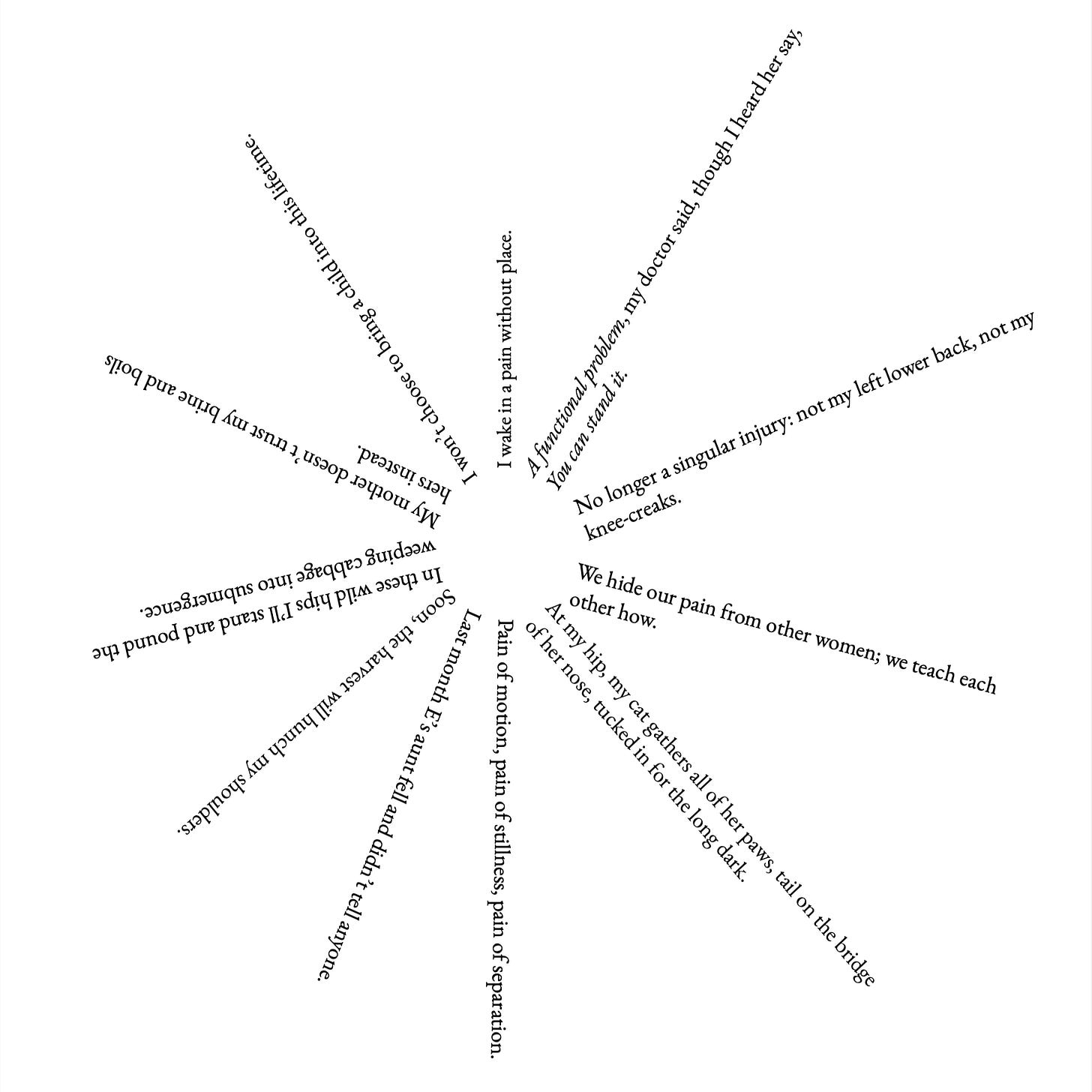
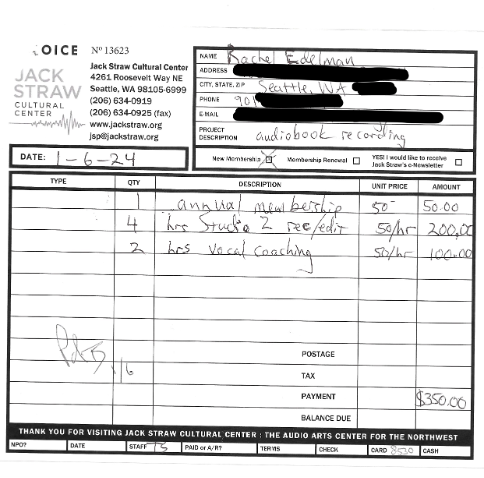
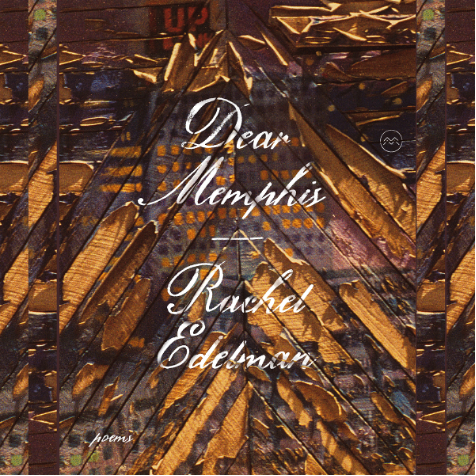

Thank you for this glimpse into your process, Rachel. I've long enjoyed reading my work aloud but have also long balked at the technical aspects of taking on an audiobook, both for myself and for other authors.